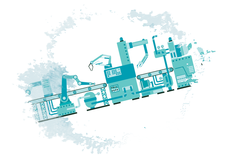Introducing the emerging office suite, OnlyOffice Desktop Editor
Office Newbie

The OnlyOffice Desktop Editor is a free office suite built for collaboration.
The Linux environment is home to several practical and high-functioning office suites. Many mainstream distros come with LibreOffice pre-installed, but other alternatives, such as SoftMaker Office [1], WPS Office [2], Apache OpenOffice [3], and the Calligra suite [4] also compete for Linux mindshare.
The Linux version of OnlyOffice Desktop Editor (formerly Teamlab Office) [5] is a recent arrival to the Linux scene. OnlyOffice is developed by a proprietary company, but a free and open source version of the suite is available and licensed under the GPL.
Like other leading office suites, OnlyOffice comes with a word processor, spreadsheet, and presentation tool. The focus is on collaborative work in a professional setting, but OnlyOffice also works well on a single workstation. Is OnlyOffice better than what you're using now? It depends on your taste and preferences, but the OnlyOffice suite does offer some interesting innovations, such as a free community server for interactive access in a local cloud environment.
[...]
Buy this article as PDF
(incl. VAT)
Buy Linux Magazine
Subscribe to our Linux Newsletters
Find Linux and Open Source Jobs
Subscribe to our ADMIN Newsletters
Support Our Work
Linux Magazine content is made possible with support from readers like you. Please consider contributing when you’ve found an article to be beneficial.

News
-
The Next Linux Kernel Turns 7.0
Linus Torvalds has announced that after Linux kernel 6.19, we'll finally reach the 7.0 iteration stage.
-
Linux From Scratch Drops SysVinit Support
LFS will no longer support SysVinit.
-
LibreOffice 26.2 Now Available
With new features, improvements, and bug fixes, LibreOffice 26.2 delivers a modern, polished office suite without compromise.
-
Linux Kernel Project Releases Project Continuity Document
What happens to Linux when there's no Linus? It's a question many of us have asked over the years, and it seems it's also on the minds of the Linux kernel project.
-
Mecha Systems Introduces Linux Handheld
Mecha Systems has revealed its Mecha Comet, a new handheld computer powered by – you guessed it – Linux.
-
MX Linux 25.1 Features Dual Init System ISO
The latest release of MX Linux caters to lovers of two different init systems and even offers instructions on how to transition.
-
Photoshop on Linux?
A developer has patched Wine so that it'll run specific versions of Photoshop that depend on Adobe Creative Cloud.
-
Linux Mint 22.3 Now Available with New Tools
Linux Mint 22.3 has been released with a pair of new tools for system admins and some pretty cool new features.
-
New Linux Malware Targets Cloud-Based Linux Installations
VoidLink, a new Linux malware, should be of real concern because of its stealth and customization.
-
Say Goodbye to Middle-Mouse Paste
Both Gnome and Firefox have proposed getting rid of a long-time favorite Linux feature.
